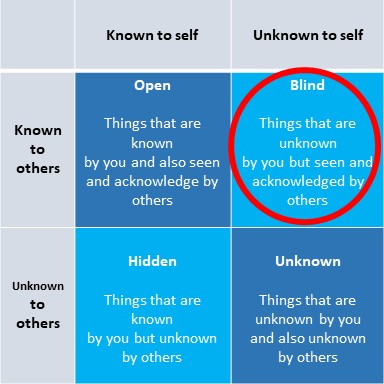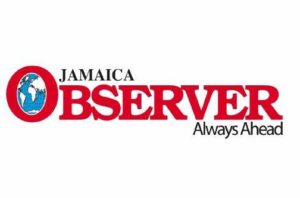Why Employee Engagement is Not Working Part 2 by Debra Fraser
In last month’s issue, we identified that: “The average person would rather have a great boss looking out for them than prizes, trinkets and parties”. Improving productivity is directly linked to employees’ engagement with… their boss! So, if you are a leader who is cognisant of the power of your role and who wants to make a difference, what is the single most important thing you can do to ensure you are part of the solution, and not the source of the problem?
Become more self-aware.
Unsurprisingly, many ‘bad bosses’ actually believe they are fantastic leaders. The problem is, they are significantly disconnected from their employees’ perception of them.
Remember Psychology 101: the Johari box? Created by two psychologists in 1955, this theory is a technique that helps people better understand their relationship with themselves and others. Each person’s self-awareness falls into four quadrants, as per the image below.
The challenge “terrible” bosses have is that much of their interactions fall in the “Blind” box. For example: during the busiest time of the day a manager appears on the production floor, shouting work-hard mantras meant to ‘encourage’ staff to hit their goals. He believes he is showing support for the teams ‘in the trenches’. Meanwhile, his staff perceives his ‘ranting’ as annoying, distracting and part of his typical ‘hands-off’ approach. The result? Staff absenteeism increases during peaks, productivity goals are missed, and there is unwanted turnover. Imagine the improvements in productivity and employee engagement if that manager were aware of the impact his approach had on his staff, instead of acting out of the blind box where everyone (including the company purse) loses!
But whose responsibility is it to make the manager aware? Is it the manager’s? Human resources’? The staff’s? Newsflash: staff will rarely volunteer feedback to their boss for obvious reasons, unless the leader genuinely solicits it and creates a safe environment for staff to share.
Leaders: Asking staff for feedback on YOU is the most important thing you can do to increase your own self-awareness and leadership effectiveness.
This week’s challenge: Ask your employees: “On a scale of 1-10, rate my leadership style.” Solicit the presence of a human resource representative to make it a ‘safe space’. Ensure you LISTEN and avoid any statement of self-defence. Then, each time you receive a rating lower than eight, ask the follow-up question: “What would I need to do differently to make that number a 10?” Don’t wait for your company’s annual employee satisfaction survey to show you up. Take the initiative to find out where your gaps are and then address them. In this way, you will have better served yourself, your staff, and your company.
Until next time, leaders keep lookin’ up!
Debra Fraser MBA, is CEO of Caribbean HR Solutions; a board member of the Business Process Industry Association of Jamaica; a member of the Human Resource Management Association of Jamaica, and Society of Human Resources Management. Please direct comments to dfraser@caribbeanhrsolutions.com or www.caribbeanhrsolutions.com
Read more



